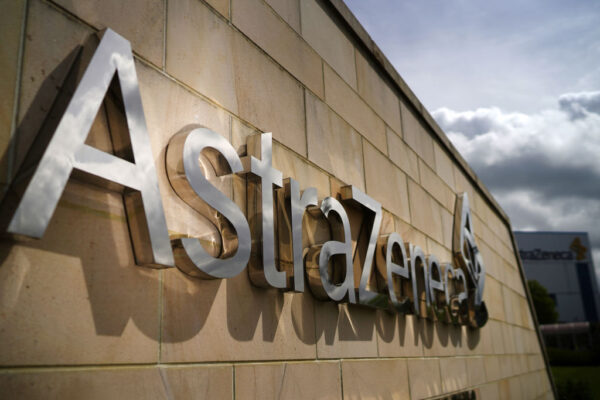
AstraZeneca is already in the respiratory syncytial virus market with two products, including the drug Beyfortus, approved earlier this year. An M&A deal will give AstraZeneca an RSV vaccine candidate based on technology that could help the company compete where new vaccines are going.
AstraZeneca is acquiring clinical-stage Icosavax for $800 million up front, the pharmaceutical giant announced Tuesday. Under the deal terms, AstraZeneca will pay $15 for each Icosavax share, which is a nearly 43% premium to the stock’s closing price on Monday. AstraZeneca could pay an additional $5 per share depending on the progress of Icosavax’s vaccine candidates. That payout could bring the value of the deal to $1.1 billion.

When Investment Rhymes with Canada
Canada has a proud history of achievement in the areas of science and technology, and the field of biomanufacturing and life sciences is no exception.
The vaccines of Seattle-based Icosavax employ virus-like particles (VLPs), which are proteins designed to resemble a virus. Because these particles don’t contain any viral genetic material, they can’t replicate and cause an infection the way a virus does. VLPs are already found in nature. Using technology licensed from the University of Washington, Icosavax engineers particles to display viral antigens that aren’t found in nature. These displays are intended to prompt immune responses to viruses that have eluded vaccine development efforts. They can also be used to develop multivalent vaccines, which are vaccines that address more than one pathogen.
Lead Icosavax program IVX-A12 is a Phase 3-ready VLP vaccine that protects against RSV and human metapneumovirus (hMPV), which currently has no vaccine. The acquisition agreement announcement followed Icosavax’s report of positive interim Phase 2 data for this bivalent vaccine in older adults. The company said this vaccine candidate induced robust immune responses against both RSV and hMPV at day 28. The adverse effects were ones commonly associated with vaccines, such as injection site pain and muscle pain. No fever or other serious adverse effects were reported.
AstraZeneca’s presence in RSV is through antibody drugs it developed to protect like vaccines. Its first RSV product was Synagis, an antibody drug that provides protective antibodies that babies lack. This drug is only approved for use in premature infants and its short half life means that babies must receive the intramuscular injection monthly during the RSV season.
Like Synagis, Beyfortus also provides protective antibodies against RSV. But this product is engineered to last for the duration of the RSV season, so an infant will need only one shot. AstraZeneca developed Beyfortus in partnership with Sanofi, which is taking the lead on its commercialization.

At ViVE 2024, Panelists Share Prior Authorization Progress and Frustration in Payer Insights Program
At the Payer Insights sessions on Day 1 of ViVE 2024, a panel on prior authorization offered compelling insights from speakers who shared the positive developments in this area after years of mounting frustration. Speakers also shared challenges as they work with providers to figure out how policy developments and technology will work in practice.
The pursuit of multivalent vaccines is dominated by messenger RNA-based technologies that were validated during the Covid-19 pandemic. Pfizer and BioNTech have reached the clinic with an mRNA-based vaccine designed to protect against influenza and Covid-19. Moderna’s clinical-stage research includes a bivalent flu and Covid-19 vaccine. The mRNA specialist has yet another shot designed to protect against flu, Covid-19, and RSV.
Icosavax’s technology could help AstraZeneca stand apart with multivalent vaccines based on a different technology. As a protein-based immunization, shots based on Icosavax’s technology could be more affordable and more accessible in more parts of the world compared with the mRNA shots, which still have strict cold-chain requirements.
“This virus-like particle vaccine technology has the potential to transform prevention against severe infectious diseases, including RSV and hMPV,” Iskra Reic, AstraZeneca’s executive vice president, vaccines & immune therapies, said in a prepared statement. “With the addition of Icosavax’s Phase 3-ready lead asset to our late-stage pipeline, we will have a differentiated, advanced investigational vaccine, and a platform for further development of combination vaccines against respiratory viruses.”
However, Icosavax has had some stumbles. Its work with a monovalent Covid-19 vaccine did not yield a sufficiently robust immune response. The company has completed selection of bivalent flu and Covid-19 vaccine candidates, but has decided not to pursue these VLP vaccines for now. The Icosavax pipeline includes a monovalent RSV vaccine in Phase 1 development and a preclinical quadrivalent flu vaccine.
AstraZeneca and Icosavax expect the transaction will close in the first quarter of 2024. Under terms of the merger agreement, if Icosavax terminates the deal, it will owe AstraZeneca a $27.2 million termination fee. If the pharma giant spikes the deal, it will owe Icosavax a $47.6 million reverse termination fee.
Photo: Christopher Furlong, Getty Images












